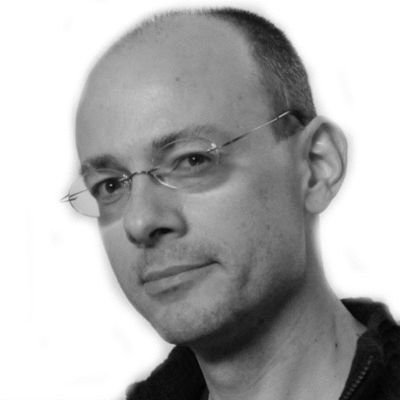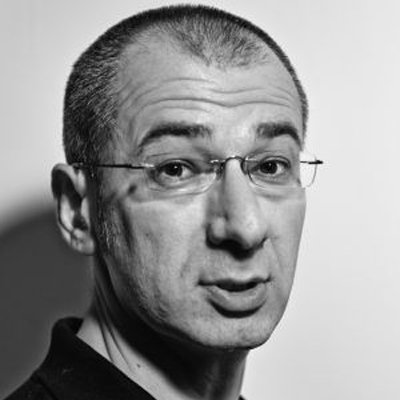
PRAISE FOR WORDS FOR WAR
“The poets here do what poets do best: in responding to a traumatic upheaval, they create a language for events that defy words. Their work is creative in the original sense of the word. The variety of the voices in this volume is its greatest strength. It reflects the fact that war affects everybody, and that Ukraine is and remains a bilingual country. … The translation into English by a stellar line-up of translators, several of whom were born in Ukraine, makes these poems available to a world-wide readership on linguistically neutral territory. The anthology is beautifully and professionally executed.”
— Josephine von Zitzewitz, University of Cambridge, Slavic and East European Journal, Vol. 62, No. 4
“Both Words for War and The White Chalk of Days, each in its own unique way, aim to provide English-speaking readers with the best examples of contemporary Ukrainian literature, while at the same time promoting it as diverse, inclusive, vibrant, and simply too riveting to be unknown or ignored. ... The poems in Words for War, as gathered by Maksymchuk and Rosochinsky, have the potential to permanently inscribe themselves in the global canon of war poetry. While narrower in thematic scope, this gripping anthology serves as a reminder of what it takes not to lose humanity and dignity in a time of war.”
— Maria G. Rewakowicz, University of Washington, Slavic Review, Vol. 77, No. 4
“The kind of poetry included ... is the antithesis of propaganda; these poetic dialogues are a valuable reminder that there is nothing immutable about Russian–Ukrainian enmity.”
— Sophie Pinkham, The Times Literary Supplement
"Poems are frequently described as 'powerful,' violence as 'unspeakable' or 'senseless.' We all have heard that the pen is mightier than the sword. Most of the time, however, we cannot fathom the meaning of these turns of phrase. In Words for War, they gain weight and significance, coming from the midst of the conflict that has engulfed Ukraine since 2014. For all the darkness and pain of many of these poems, translated from both Russian and Ukrainian, they attest to an optimism that literature can speak back to violence, can find its sense, that language will prevail over the cynical political interests that have engineered this needless bloodshed. Rendered into English by a superb international team of translators, with moving introductory and concluding essays, this volume is the best account of the war in Ukraine I have read."
— Kevin M. Platt, Professor of Russian and East European Studies, University of Pennsylvania,
editor and translator of Hit Parade: The ORBITA Group (2015)
"Words for War: New Poems from Ukraine is an urgent, beautiful and astonishing collection of poems. Read this book to remember, as Kateryna Kalytko writes, that 'Loneliness could have a name,' and, as Vasyl Holoborodko writes, that there is an invisible history in every series of footsteps. How may we remember our humanity? 'I’m gathering my footsteps / so that strangers don’t trample them.'"
— Laynie Browne, author of P R A C T I C E
"How much Ukraine has suffered, we cannot count, and so we often forget. A battleground for empires, torn apart from inside and out, as far back as it can remember. War has been waged over and through it and when it tired, hunger, ethnic strife, political repressions, corruption, or stagnation took its place. It has had scarcely a night of peace. So the poets in this anthology don’t sleep; they keep their poems open 24 hours, awake, which is why — as one poet in this anthology writes — 'Poetry witnessed it all.' The poets in this collection — writing in Ukrainian or in Russian, or questioning the place of their own language — move quickly and confidently between straight-faced testimony (a la Charles Reznikoff) and Celan-esque fragmentation; veering and ricocheting between witness and trauma, as if to explode those easy distinctions and catch the blur of history."
— Matvei Yankelevich, author of Some Worlds for Dr. Vogt (2015)
"We necessarily come to these poems in a time of war, and that war’s grotesque political dimensions and endless violence are painfully felt on these pages. But these are poems that should command our attention even in a time of peace, should it ever come to our troubled planet: these are poems in which the spirit of creative imagination, free expression, emotional clarity, and ethical courage reigns supreme."
— Stephanie Sandler, Professor, Department of Slavic Languages and Literatures, Harvard University
"'How would you explain the war?' asks one of the poems in this collection, but indeed it is the main question of the whole. War, whether seen from up close or far away, crumples the fabric of life. It enters like a pole exerting a pull on every point of daily experience. War turns out be an autonomous mechanism: its causes and reasons fall away, but it abides and expands, self-caused, self-moving, self-creating. It is a machine of such overwhelming reality that in its presence reason and language can either go silent or turn into poetry, which is, after all, a shape of silence. But then what happens? Do we read this collection to 'learn' about war? Do we read it for its existential authenticity? Do we read it as a model of the poetical becoming political? Do we read it to use it for our own ends? Its poets include soldiers, refugees, inhabitants of regions at peace, émigrés anxiously contemplating the conflict from afar. Some, like Serhiy Zhadan, have achieved international fame, others are more locally known. The skilled translations render originals in Ukrainian and in Russian composed in a variety of styles. The editing gives each poet enough material for us to grasp the individuality of the voice."
— Eugene Ostashevsky, professor in the Liberal Studies Program at New York University, translator of
The Fire Horse: Children’s Poems by Vladimir Mayakovsky, Osip Mandelstam, and Daniil Kharms (2017)
"In this powerful new anthology a number of emerging and established Ukrainian voices chart what it means to be in a state of war, and how it affects the poetics of a country. They represent a flourishing and important poetic identity, and a body of work on war equal to anything in the current global canon of war poetry. However the poems here also have a political urgency. An unacknowledged war has been going on between Russia and Ukraine for several years now, and the level of misinformation and propaganda is now extreme. The poems published in Words for War are not just things of beauty and truth, but essential information in an age of fake news."
— Sasha Dugdale, editor of Modern Poetry in Translation
"Words for War is not your conventional poetry of witness but poetry and collective translation as intervention, complicity, weapon, social media fodder, reflection, deflection, defection, defiance, sentiment, mourning, melancholy, anger, black comedy, patriotism, disgust, activism, iPad wet dream, delirium, nightmare, hope, hopelessness, absurdity, combat. Poetry in the service of poetry. Poetry on the front lines."
— Charles Bernstein, co-editor of Best American Experimental Poetry (2017)
"Poets standing on a small patch of ground between life and death; this is one of the most important anthologies of our time! Many thanks to the poets, editors and translators, bringing urgency to the forefront! These are poets who remind us we are of one world and we need to meet them there!"
— CAConrad, author of While Standing in Line for Death










